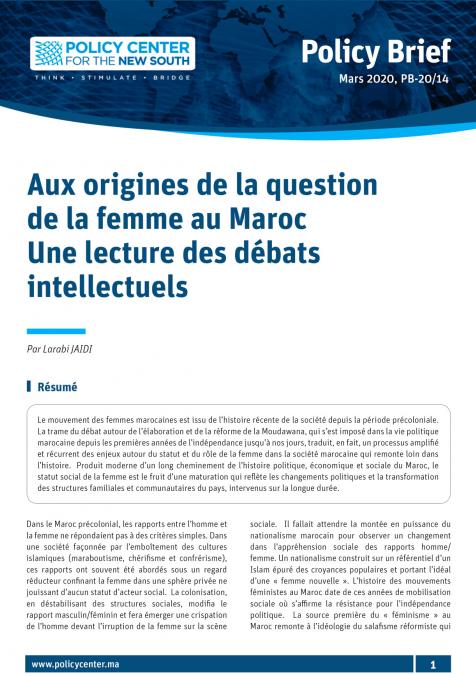Publications /
Opinion
I recently had the privilege to represent the Global Shapers Community at the World Economic Forum’s Annual Meeting 2019 in Davos-Klosters, which convened over 3,000 participants under the theme, Globalization 4.0: Shaping a New Architecture in the Age of the Fourth Industrial Revolution. To attend Davos as a Global Shaper is a big deal. As a delegate, you are not only responsible for representing the voices of youth, about 10,000 from across the world, but you also owe it to yourself to make the best of this unique opportunity to champion the causes you are passionate about.
There is a lot of granted cynicism around Davos, especially when thinking about issues around social inequality and globalization. From a youth perspective, I felt at times out of place. The average age of the Davos participant this year was 53 years old, and only 22% of attendants were women. The concentration of wealth and power can also be overwhelming which is part of the reason why the Davos meeting, and its ability to bring concrete and practical solutions to the world’s most pressing issues, is questioned.
However, in the midst of the cynicism, there are leaders from politics, business, civil society and academia that demonstrate willingness to shape global, industry and regional agendas in the context of Globalization 4.0 and the Fourth Industrial Revolution. Many of them are more open and approachable here than they would normally be back in their regular environment. There are also the expected participants you meet such as painters and Buddhists, which makes you realize not everything that happens at Davos is transactional and just about business.
Being at Davos is a once-in-a-lifetime opportunity and allowed me to stick to my primary objective—shaping education in Africa—and devote most of my efforts to identify companies and institutions willing to invest in Africa’s biggest dividend: Its youth.
At a community session with Henrietta Fore, Executive Director of UNICEF, the consensus was clear. The world’s largest-ever group of young people are reaching working age at a time when technology, automation and expanding webs of globalized trade are redefining the world of work and employability. Therefore, young people want better education and more skills for the jobs of tomorrow. This includes digital skills, modern agriculture, green technology and entrepreneurial skills. To address these challenges, the Global Shapers and UNICEF decided to work towards a formal partnership agreement to create impact for young people. Shapers will help UNICEF finalize the Generation Unlimited strategy, design country-level plans, and involve more young people into their work.
Leaving room for surprises and discovery led me to have a chat on Liberal Arts education with President of Rwanda, Paul Kagame, practice my Spanish with Deputy Minister of Foreign Trade Economy of Brazil, or discuss, with the Princess of Luxembourg, ways to advance access to quality education in West Africa. In Cameroon, just like in most Sub-Saharan countries, the pursuit of education can be precarious and comes at a cost. This is especially true in Southwest and Northwest Cameroon, two English-speaking regions that have been rocked by security and socio-political crises since 2016. These ongoing challenges led thousands of internally displaced populations to move to safer cities, and kept many children out of school for almost two years. As a result, enrollment in schools in afflicted regions drastically plummeted. Simultaneously, high schools in cities such as Yaounde and Douala saw their enrollment rise significantly, overwhelming staff and teachers, poorly equipped to deal with and manage this exceptional influx of students. This context makes it crucial for Cameroon to safeguard in and out-of school learning outcomes for students through capacity building programs for students and teachers, as they have primarily suffered the consequences of a crisis which, on more than one occasion, involved the abduction of students and killings of teachers and school administrators.
Global Shapers
From where I stand, the Global Shapers is the best thing that happened at the Annual Meeting in Davos this year. Founded by the World Economic Forum in 2011, the Global Shapers Community is a network of inspiring young people working together to address local, regional and global challenges. With more than 7,000 members, the community spans 371 city-based hubs in 170 countries. Our areas of impact, and this until 2021, include fight climate change and protect nature, accelerate equity and inclusion, and future-proof education and entrepreneurship. Examples of projects we undertake include “Wi-Fi Fou”, from the Bamako hub in Mali, which aimed to increase access to new technologies for adults by providing an entire community with free Wi-Fi, or the “Green Taxis Initiative” from the Zurich hub in Switzerland, implemented to increase the acceptance of electric mobility through the introduction of electric taxis in various cities throughout the world.
The dynamism and credibility of the Global Shapers Community are undeniable assets we leverage for advocacy and policy-making purposes. At Davos, we brought refreshing perspectives and were not afraid to ask thorny questions at the sessions in which we participated.
Although diverse in race, gender and professions, the Global Shapers community aims to address local challenges with a global outlook. The technological, political, economic and societal changes that are underway are not limited to a particular country, industry or issue. My participation at Davos reminded me that the engagement of all stakeholders in sustained dialogue is crucial, as is the necessity to think systemically and beyond short-term institutional and national considerations. I consider myself privileged to belong to a community of young leaders with contagious enthusiasm and relentless drive to make a lasting impact in their communities with the understanding that collectively, we can work to improve the state of the world.



